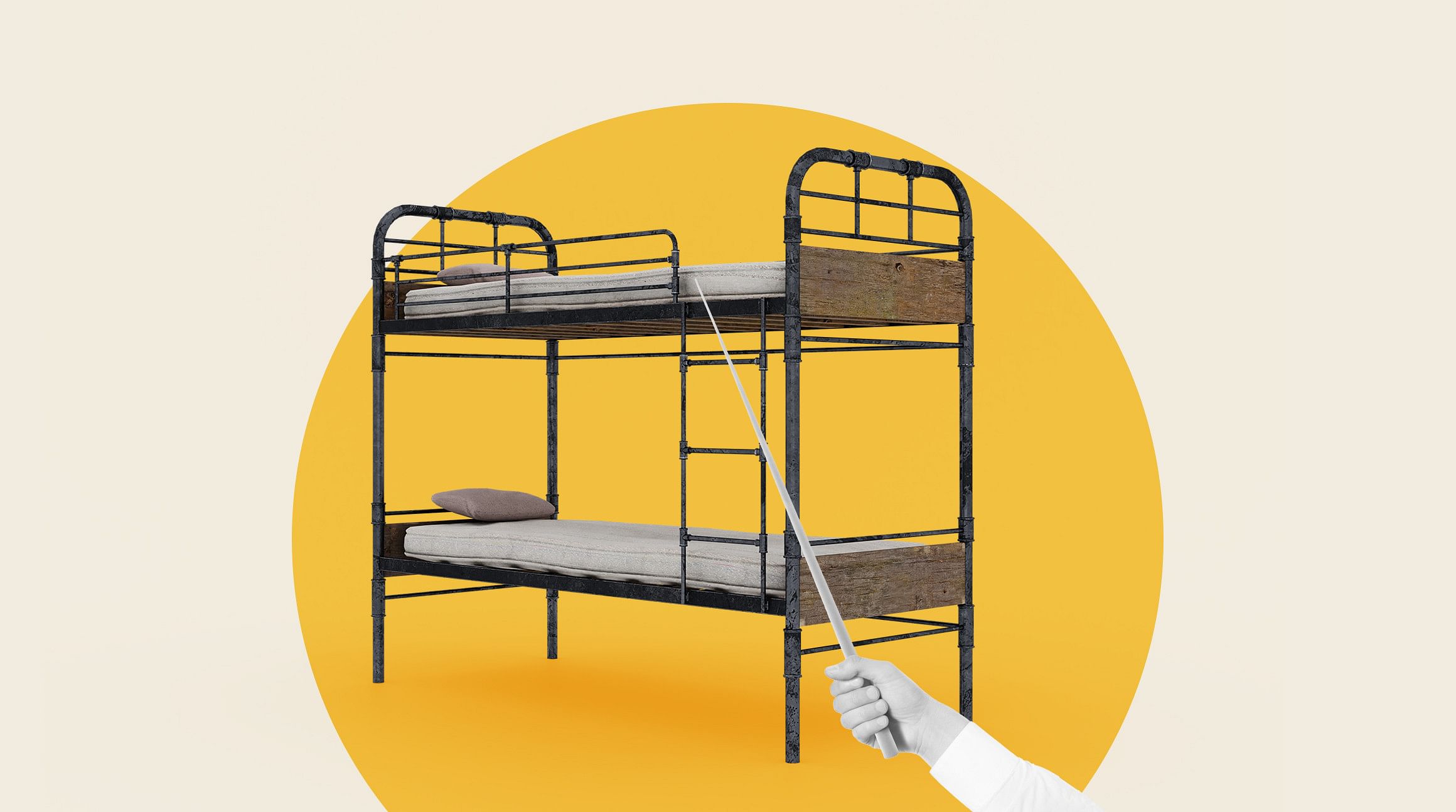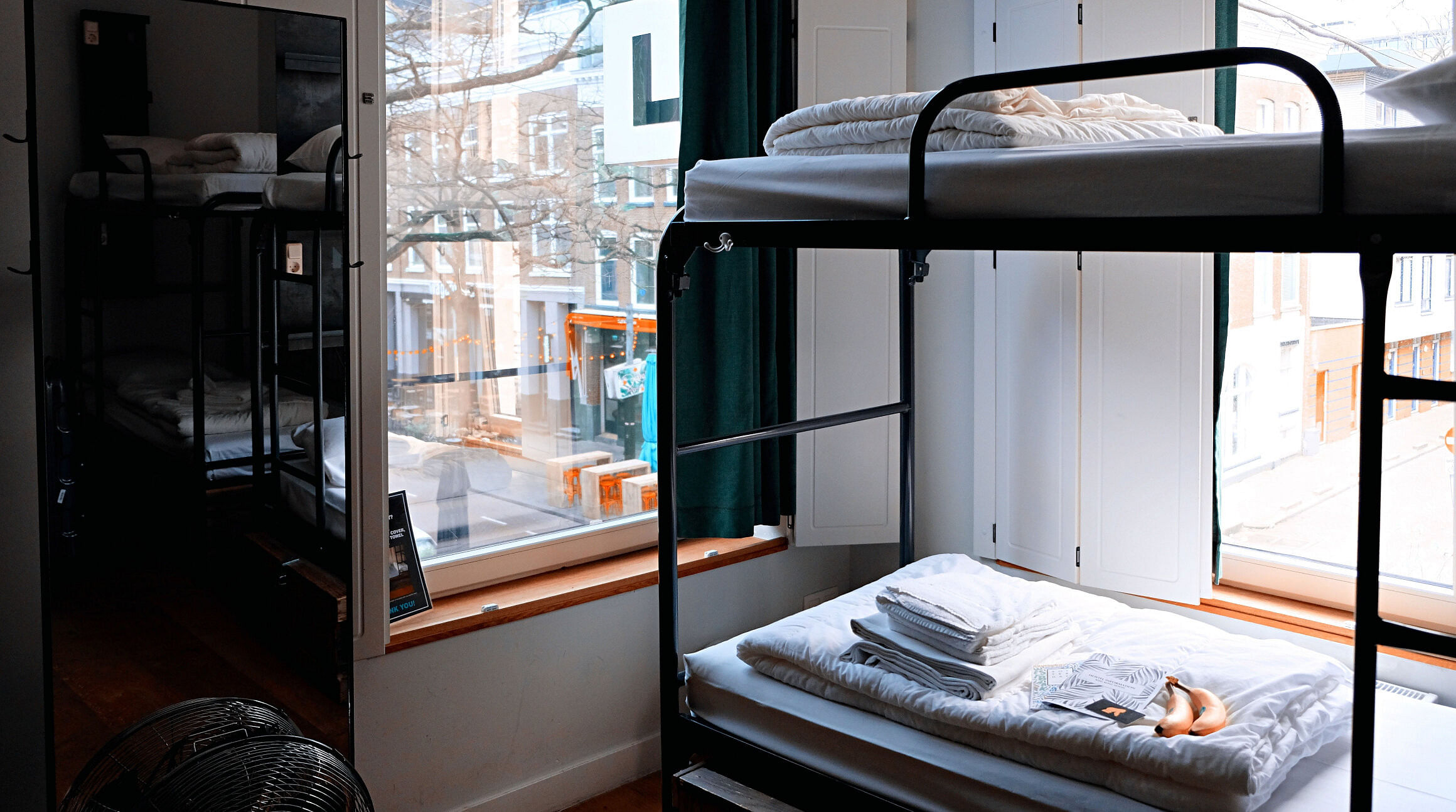
Is it safe? Comfortable? Will I be sharing with strangers? Is it better value for money? If you've never stayed in a hostel, you probably have plenty of questions about it. You might wonder what it's like and whether it's the right idea for you. After all, we're not all cut out for sharing bunks and co-living with strangers.
But when you're traveling, hostels can be a really fun and budget-friendly way to find accommodation and meet new people. That said, there are some key things to know about staying in a hostel before you do it. That's why My Baggage has created this guide for what to expect when you stay in a hostel.
A Hostel Is Not the Same as a Hotel
One of the most important things you need to know about staying in a hostel is that it isn't the same as a hotel. Hotels tend to be more private and offer amenities within your room, such as a kettle, tea, coffee, shampoo, etc.
A hostel is more about sharing rooms — you pay for your bed and share the rest of the space. Of course, you can get a private room in a hostel, but again, these don't come with the amenities of a hotel, and you still have to share spaces with other residents. We'll look at the different types of rooms in the next section.
Finally, hotels typically have bars and restaurants where you can dine for breakfast, lunch, and dinner. Many hostels have a dining option, perhaps offering breakfast and dinner, but most just have a shared kitchen you can use to prepare your own meals.
Hostels Have Several Different Types of Rooms
When we think of hostels, we tend to picture bunk beds and shared dormitories, and for many hostels, that's very much the case. But many hostels offer more options than shared dorms (though these tend to be the cheapest option).
Some of the other types of rooms that might be available include:
- Dorms with bunk beds: These are the most common type of room and can range from four to forty beds.
- Dorms without bunk beds: These are similar but with single beds rather than bunks.
- Pod-style dorms: These offer more privacy and are made up of lots of little pods within one shared space.
- Private rooms: These can be single, twin, or double rooms and often include a private bathroom.
- Family rooms: Some hostels will have family-style private rooms for parents traveling with children.
- Apartment or suite rooms: These allow you to rent out an entire apartment space. They offer a more luxurious experience and are ideal for larger groups traveling together.
Every hostel is different, so some will offer only some of the options above. Some will consist entirely of dorms, while more luxury hostels will offer apartments, suites, and family rooms. If you want a specific type of room, you'll need to research beforehand to find a hostel with what you're looking for.
Everything Is Shared
As we mentioned above, just about everything in a hostel is shared. From bedrooms and bathrooms to communal rooms and kitchens (including plates, forks, and cups) — pretty much anything you can think of is shared. That is, other than your own personal belongings, but of course, you can share these with your fellow residents if you want to.
You Might Not Have Much Privacy
Depending on where you stay and the type of room you choose, you could find yourself in an all-female, all-male, or mixed dorm. But in any case, you won't have as much privacy as you would in a hotel room, so you have to be comfortable sleeping and getting changed in front of others.
Of course, you could get changed in the bathroom for more privacy, but in some cases, these spaces are also communal male/female bathrooms and showers. Essentially, unless you're going to pay for a private room, be prepared to have limited privacy during your stay.

You'll Meet Lots of New People
You'd rarely sit down and start a conversation with people in a hotel lobby or restaurant. Hostels, on the other hand, are very friendly environments where you're guaranteed to meet lots of new people. This is particularly true if you're sharing rooms or dorms, as you'll get to know your bunk buddies pretty well.
What's more, hostels are multicultural hubs made up of travelers from all over the world, and you'll likely find yourself hanging out with those you meet. This is why many solo travelers choose to stay in hostels — they're not just cheap and cheerful but also a great place to make new friends.
You Need to Be Savvy
One of the key concerns for people looking to stay in a hostel is whether or not it is a safe environment. This is especially true for solo female travelers. While staying in a hostel can be, and usually is, completely safe, there can be a lot of foot traffic in and out. And let's face it — you're sharing a room with a bunch of strangers.
You've got to be prepared to use your intuition and common sense to stay safe. Some hostels will offer safe spaces where you can lock your things away (such as passports and technology). If not, invest in a padlock and be sure to store your stuff safely when you're out.
Similarly, if you are staying in a hostel and something doesn't feel right, have the confidence to pack up your stuff and leave. Your intuition and common sense are important for keeping you and your belongings safe.
Guest post by Stuart Cooke from My Baggage.



